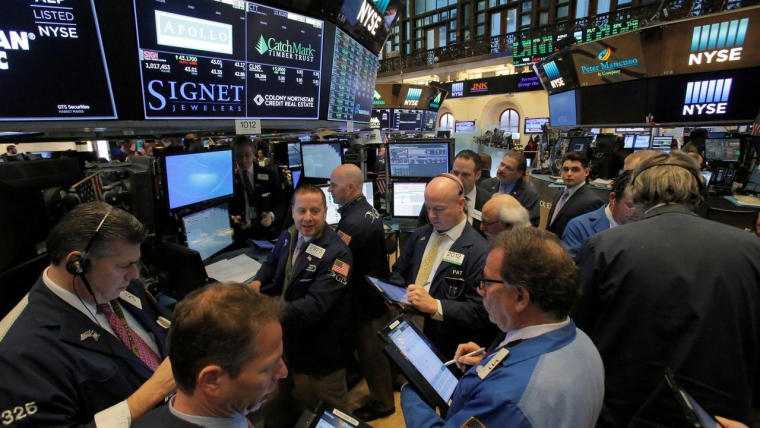
The new week has begun with much stronger risk sentiment, supported by the opening up of countries from lockdowns and hope for a new vaccine to fight COVID19. US and European equities are up in the order of 3-4%, global rates are higher and the NZD and AUD are near the top of the leaderboard.
Last week was one in which negative risk sentiment prevailed for the large part but a new week has given way to a complete reversal. The easing of lockdown restrictions continues across the world, even if looking a little too early in some cases to avoid a possible second wave of COVID19 cases. Real-time data, such as that published by Apple, shows increased mobility across most developed countries, a sign that economic activity is clearly picking up.
Alongside that, two headlines have helped support risk appetite. Early testing for a possible COIVID19 vaccine looks promising from US biotech company Moderna. On a small human-based sample, there were signs that the drug can create an immune-system response to fight the virus. Trials can now proceed on a larger scale, with a phase 2 trial on 600 patients beginning immediately and a phase 3 trial on thousands of patients sometime in July.
And on the policy front, Germany and France have agreed to support the €500bn Recovery Fund, a significant step to getting the Fund up and running, although it still requires the support of the rest of the 27 EU members to get off the ground. Funds would be raised by the European Commission borrowing on capital markets and then distributed to needy nations in the form of grants than loans. This latter distinction is important and still faces opposition from some nations, including Austria, the Netherlands, Denmark and Sweden.
These headlines have triggered a decent bounce in global equity markets, with the Euro Stoxx 600 index closing up 4.1%, while the S&P500 index is currently up over 3%. Higher risk appetite sees global rates shift higher, with US rates up across the curve. The 2-year rate us up 4bps to 0.18% while the 10-year rate is up 9bps taking it back above the 0.70% mark and currently near 0.73%. Hope that the EU recovery fund can get off the ground sees Italy’s 10-year rate down 19bps to 1.67%, going against the 7bps rise in Germany’s 10-yr rate to minus 0.47%.
Monday morning NZ time, Fed Chair Powell spoke in a CBS TV interview and said that assuming there wasn’t a second wave of COVID19, the US economy can recover steadily through the second half of the year, although he added that the recovery “may take a while…it could stretch through the end of next year”. Even though the Fed has already done a massive amount to support the economy, he suggested that “we’re not out of ammunition by a long shot”, as it could upscale its emergency lending programmes and asset purchase strategy, and use forward guidance. On the question of negative interest rates, he reiterated the unanimous view of the FOMC that it is not an appropriate or useful policy…”there’s no clear finding that it actually does support economic activity on net…it introduces distortions into the financial system which I think offset that”.
There have been mixed messages on negative rates from BoE MPC members. Last week Governor Bailey said that negative rates weren’t currently being planned for or contemplated. In a weekend interview Chief Economist Haldane seemed to contradict that, saying that the Bank was examining unconventional monetary policy measures, the suite of which included negative interest rates. Overnight MPC member Tenreyro said that negative rates shouldn’t be ruled out, “everything is on the table for us”.
Oil prices are up in the order of 7-8%, supported by stronger risk appetite and a report that Chinese oil demand is nearly back to levels seen before China’s lockdown – around 13 million barrels per day – according to those on the ground. Increased demand comes at a time when production is falling, supported by the big cuts by OPEC+ producers and low oil prices encouraging US shale producers to stop drilling. Brent crude has breached the USD35 mark overnight.
Higher risk appetite sees a decent rebound in the NZD and AUD, both up in the order of 1.6% to 0.6030 and 0.6510 respectively – the AUD recovering nearly all of last week’s loss, while the NZD is still only halfway there. There was little movement in the NZ rates market yesterday, taking a breather from last week’s action-packed events.
JPY has been the weakest of the majors, reflecting its pre-eminent sensitivity to risk appetite, which sees NZD/JPY up 2% to 64.8. Yesterday, Japan GDP data showed a contraction for the second quarter in a row in Q1, with COVID19 adding another layer of negativity to already-weak economic conditions following last year’s tax hike. An even bigger contraction will be seen in the current quarter.
The NZD’s gains on other crosses have been more modest, although still noteworthy. NZD/EUR is up 0.7% to 0.5525, even with EUR making good ground against the USD, taking it back up through 1.09. NZD/GBP is up 0.9% to 0.4950. GBP shrugged off some early weakness yesterday after the report on Haldane’s comments on negative rates, seeing a return to the 1.22 mark.
In the day ahead, there will be interest in the Australian weekly payrolls data to assess the damage being done to employment. US Fed Chair Powell will be in the headlines again tonight as he faces a Senate Banking Committee.

We welcome your comments below. If you are not already registered, please register to comment
Remember we welcome robust, respectful and insightful debate. We don't welcome abusive or defamatory comments and will de-register those repeatedly making such comments. Our current comment policy is here.